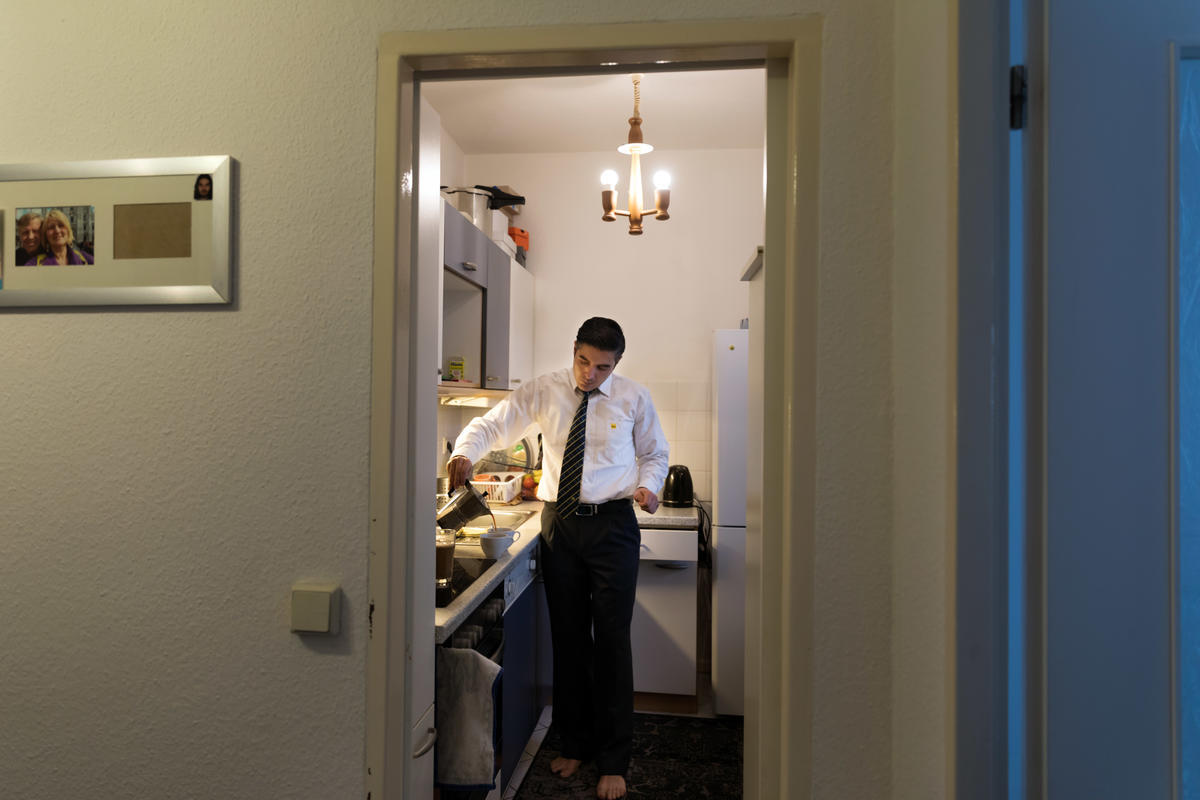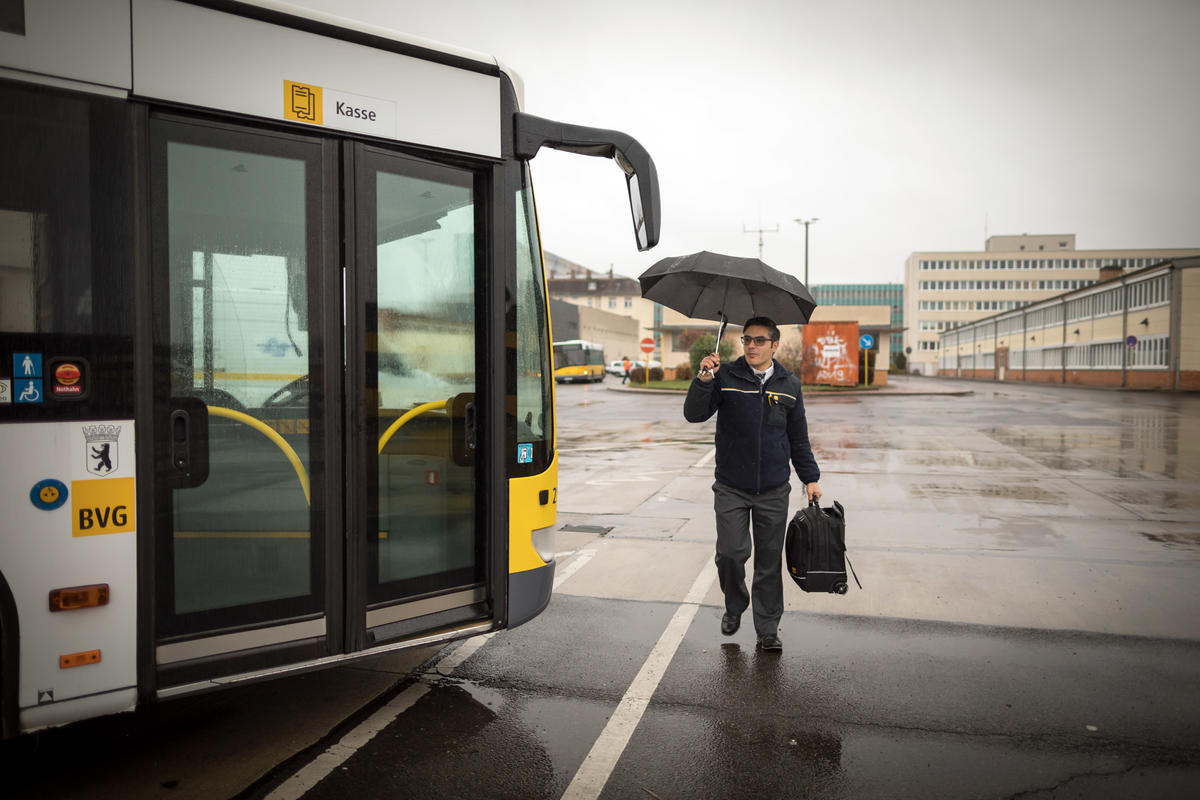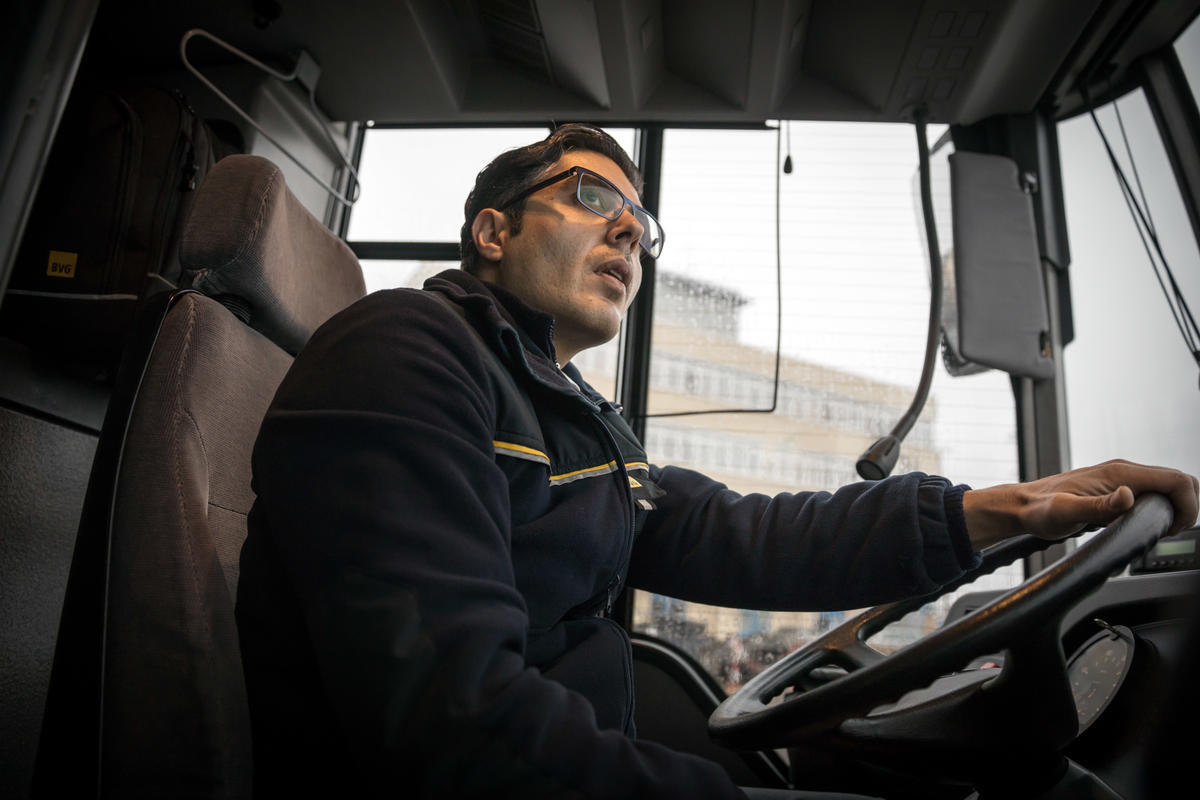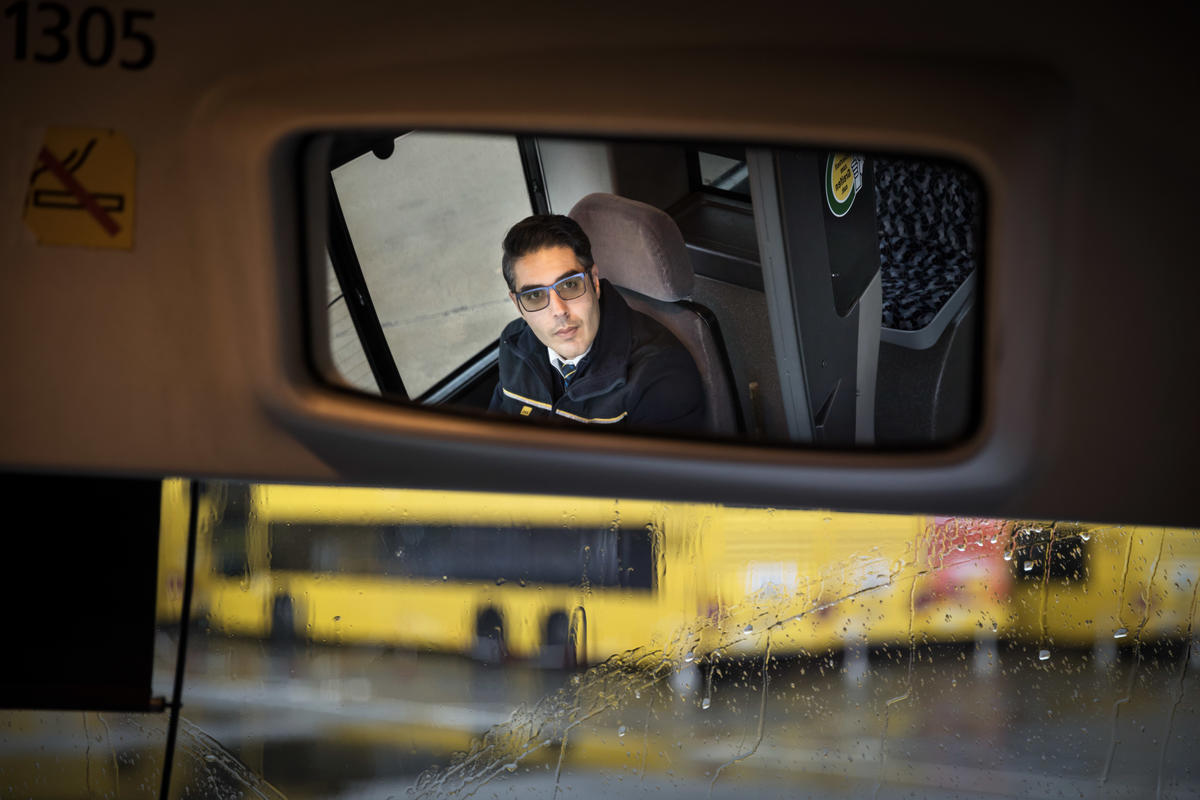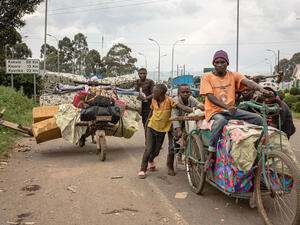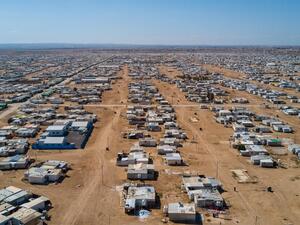Berlin bus job puts Syrian refugee in the driver's seat
Mohamad Al Said steps aboard a chugging, yellow bus and clambers inside the drivers’ cab, as passengers file on board behind him. The Syrian newcomer may look like he belongs in his new role as a bus driver, but getting here has meant months of hard work.
“I wanted security and a good, safe life for me and my family,” says the former literature student, 33, who fled to Germany from Syria in 2015 and recently retrained as a bus driver with Berlin’s transport network. “That’s very important to me.”
At first, Mohamad says he found it hard to get by in a strange new country with two young sons. But he soon found new friends who helped him with everything he needed to start over, from learning German to finding and furnishing an apartment.
“I wanted security and a good, safe life for me and my family."
Before long, Mohamad’s thoughts turned to job-hunting. He had studied Arabic in Syria and hoped to one day become a teacher. However, further study and teacher training would take years. With two young children to support, he realised he would need to fall back on other skills.
Mohamad told friends he had once had a job driving a small, nine-seater bus for a school in Syria. His friends suggested he contact Berlin’s transport network (BVG), which was looking for drivers. Several months later, he was offered a place on a special training programme for refugees.
“The job centre called and said, are you still interested in driving buses for Berlin?” recalls Mohamad. “I said of course! I worked very hard at it, I was always focused in our training sessions.”
This summer, Mohamad was one of 16 newcomers to complete the year-long traineeship run by BVG and the city’s employment agency. It began with a four-month language course, followed by in-depth security and technical training. Most of the trainees had never driven a bus before.
“We had to understand how buses run,” explains Mohamad. “We had to know how assisted braking works, how a diesel engine runs and what we should do if something went wrong.”
Mixed in with all the theory was a lot of driving practice. The trainees worked with nine-seater buses, smaller versions of the buses roaming Berlin’s streets. Mohamad passed the programme and then successfully applied for a permanent, full-time job with BVG. Only then was he able to try driving the different types of buses in the network’s 1300-strong fleet.
“At first the buses felt gigantic,” says Mohamad. The sheer size of the double-deckers, he remembers, meant they were the hardest to handle.
Once Mohamad had mastered the buses, he could start memorizing routes on his patch in eastern Berlin. Within a week, he had started work. Some of his current lines serve elderly passengers, while others take tourists to and from Berlin’s Schönefeld airport.
“What I like about my job as a bus driver is serving people,” says Mohamad. “Transporting elderly people to from A to B. Helping people, that’s an important thing that I do every day.”
For him, the mix of people is the best part of his job. “Every bus line has different types of people. I like that about Berlin, that there are people here of all different nationalities.”
“What I like about my job as a bus driver is serving people."
Mohamad now drives buses full-time, working 39-hour weeks in a series of eight-hour shifts. It can be hard work driving in busy traffic and dealing with aggressive drivers. Outside of work, he never drives and prefers to navigate Berlin by bike.
“I never get annoyed with the cyclists,” he says. “I know how a cyclist thinks, so I always respect them and give them a lot of room.”
Two months into the job, Mohamad is starting to know his bus routes inside out. Safety aside, his biggest priority is keeping to the strict time schedule. He is committed to doing the best job he can, not least to secure a future for his two young boys, who are now in school.
Although he misses his home in Syria, he is grateful to have found a safe place to start over. For many refugees, jobs not only provide economic benefits but also a way to interact with locals.
“This exchange as equals is key to social integration and makes foreigners neighbours, colleagues and potentially friends,” says Dominik Bartsch, the Representative for UNHCR, the UN Refugee Agency, in Germany.
“This job as a bus driver means everything to me now,” he says. “Home is home, it will always stay in my heart, but I would like to stay in Berlin and work. The job has brought me security in Germany and means that I can support myself and my family financially. And that’s very important.”


